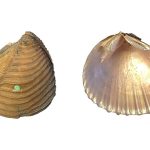In the search for Earth-like worlds, we should probably focus on red dwarfs
When astronomers first discovered exoplanets, they found massive ones orbiting large stars.
The technology to detect smaller planets around low-mass, dim red dwarfs took time...
How rare earths move through deserts and ice
Rare earth elements might sound like something out of science fiction, but they’re real—and essential to the modern world.
Used in everything from smartphones and...
The oceans on Enceladus are highly alkaline
What can the pH level of the subsurface ocean on Enceladus tell us about finding life there?
This is what a recent study accepted to...
Not Turkic, but Yeniseian: The surprising ancestry of the European Huns
A new linguistic study has revealed that the European Huns, including their famous leader Attila, were not Turkic in origin as once believed, but...
The secret 11,000-year journey of the avocado from cave to toast
The avocado may be a trendy food today, but its roots stretch back more than 11,000 years.
A groundbreaking archaeological study is revealing how ancient...
Texas-sized possum from 60 million years ago sheds light on ancient life
A newly described ancient mammal discovered in Texas is turning heads—not just for its size, but for what it reveals about life millions of...
Ancient asteroid extinction may help save today’s shellfish
Clams, mussels, oysters, and scallops are not just dinner menu staples—they’re also key players in marine ecosystems.
These bivalves filter water, improve habitats, and provide...
How to make building blocks for a lunar habitat
By 2028, NASA intends to land the "first woman and first person of color" on the Moon as part of the Artemis III mission.
This...
Scientists catch a slow-motion earthquake in action beneath the sea
For the first time ever, scientists have observed a slow-motion earthquake as it happened along a major underwater fault off the coast of Japan.
Unlike...
Ancient squids ruled the seas long before the dinosaurs died out
New fossil research has revealed that squids were already dominant predators in the oceans 100 million years ago—much earlier than scientists previously believed.
Using a...










